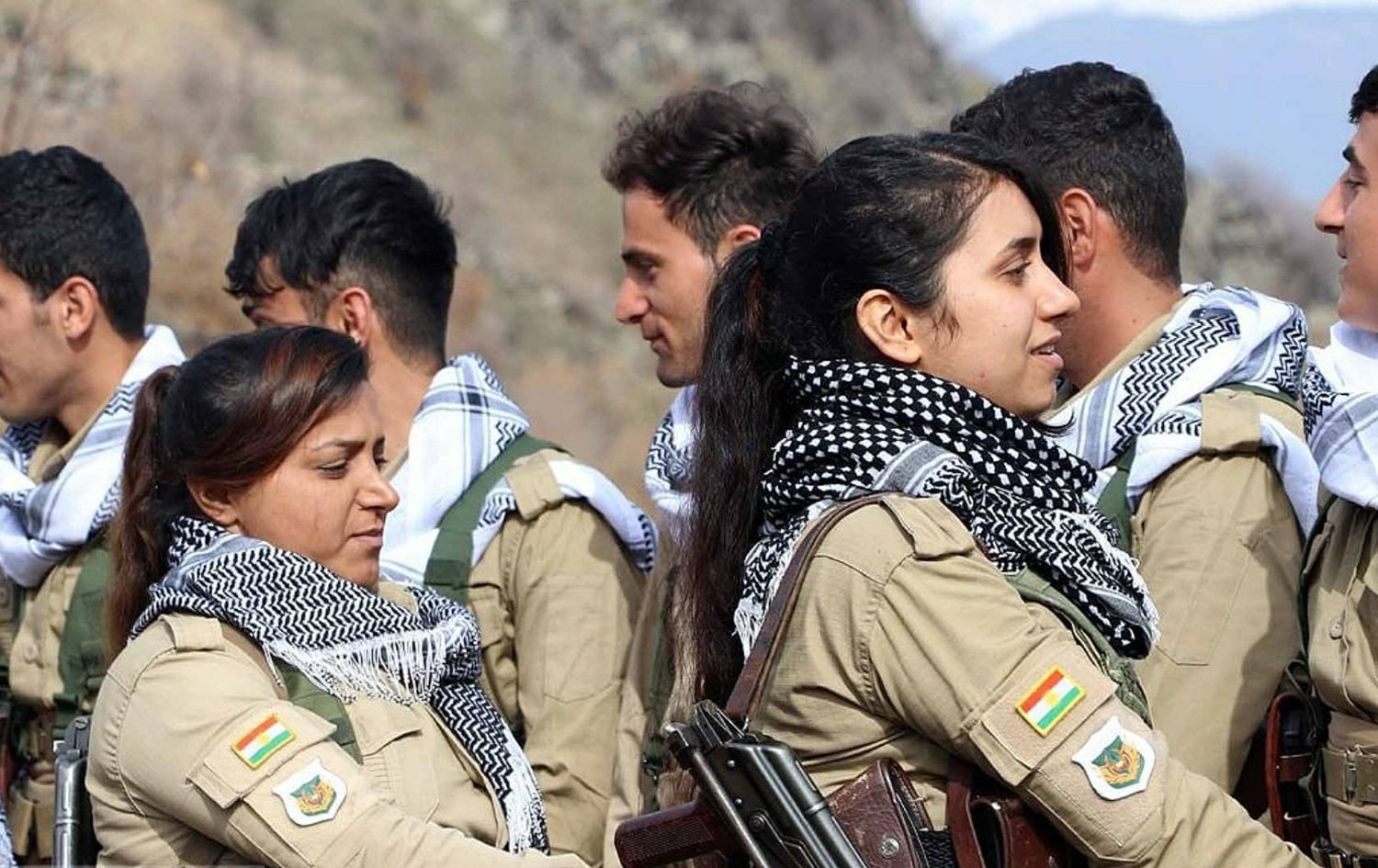As Israel Strikes Iran, Iranian Kurdish Groups Observe with Caution

As Israel continues its unprecedented air campaign against Iran, marked by a decapitation of top military leadership through a series of targeted strikes, Iranian Kurdish opposition groups based in the Kurdistan Region have been placed on high alert. They fear they could be among the targets of any Iranian retaliation. Meanwhile, the Kurdish cities of northwest Iran remain largely calm, though residents, like many across the country, have begun stockpiling fuel and food in anticipation of broader instability.
Context: Under a recent security agreement between Iran and Iraq, Iranian Kurdish opposition groups were relocated to UN-supervised camps in the Kurdistan Region. The agreement stipulates that these groups be disarmed and transferred to civilian facilities under international oversight. Iran has previously launched missile attacks against these camps, and the fear now is that they could again become targets if Tehran seeks to project strength in its response to Israel.
Analysis: Although the operational capacity of Iranian Kurdish opposition groups has declined over the past decade, their strategic significance remains undiminished. Among Iran’s ethnic minorities, the Kurds are by far the most politically and militarily organized. Even in their weakened state, they represent a latent threat—one that Tehran continues to treat seriously, particularly in moments of heightened external or internal pressure.
The regime’s push to disarm these groups intensified after the 2022 protests that erupted in Kurdish regions and expanded nationwide following the death of Jina Amini. Tehran accused the Kurdish opposition of fomenting unrest, deepening its perception of them as a destabilizing force. Yet Tehran’s strategy toward its Kurdish population has not been uniformly repressive. In recent months, Iran permitted unusually large-scale Newroz celebrations in Kurdish cities, a rare show of cultural tolerance. This may reflect a calculated attempt to defuse ethnic tensions and reduce the risk of Kurdish insurgents reactivating in tandem with rising instability.
That softening came amid a string of strategic setbacks for Tehran: the fall of the Assad regime in Syria, the effective dismantling of Hezbollah’s infrastructure in Lebanon, the assassination of dozens of senior Iranian commanders, and repeated strikes that have compromised Iran’s air defense systems. With the regional balance tilting, and Israel applying intense military pressure, Iran has sought to project resilience while quietly relaxing some domestic controls—particularly in areas, like Kurdish regions, where rebellion could resurface if mishandled.

Should the Israeli campaign degrade the regime’s capacity further or create chaos, Iranian Kurdish groups could reemerge as active players on Iran’s periphery. This is precisely the scenario Tehran has tried to preempt by insisting on their disarmament and relocation under UN oversight.
Turkey, for its part, has also kept a close eye on these dynamics. Israeli interest in Iranian Kurdish factions alarms Ankara, which fears the Kurdish card in Iran could be used to reshape the regional map. While Turkey has sought to cultivate influence among Iran’s Azeri minority, it recognizes that Kurdish groups, especially PJAK, possess ground-level capabilities that Azeris do not. This may partly explain Ankara’s broader strategy of pressing the PKK toward disarmament: to forestall Israeli leverage in Iran’s Kurdish regions and to maintain its own relevance in shaping the post-crisis regional order.
As Iran struggles to formulate a response to Israel’s strikes, Iranian Kurdish groups are watching closely but have so far refrained from action. Some Kurdish activists have called for the groups to be placed on standby, arguing that the emerging chaos could eventually present an opening, especially if the regime’s grip weakens further. Still, for now, life in parts of Iran’s Kurdish regions appears outwardly normal. In some areas, residents continue their usual Friday routines, including picnics. However, in other locations, the sound of missile strikes and nearby targets being hit has disrupted daily life.









